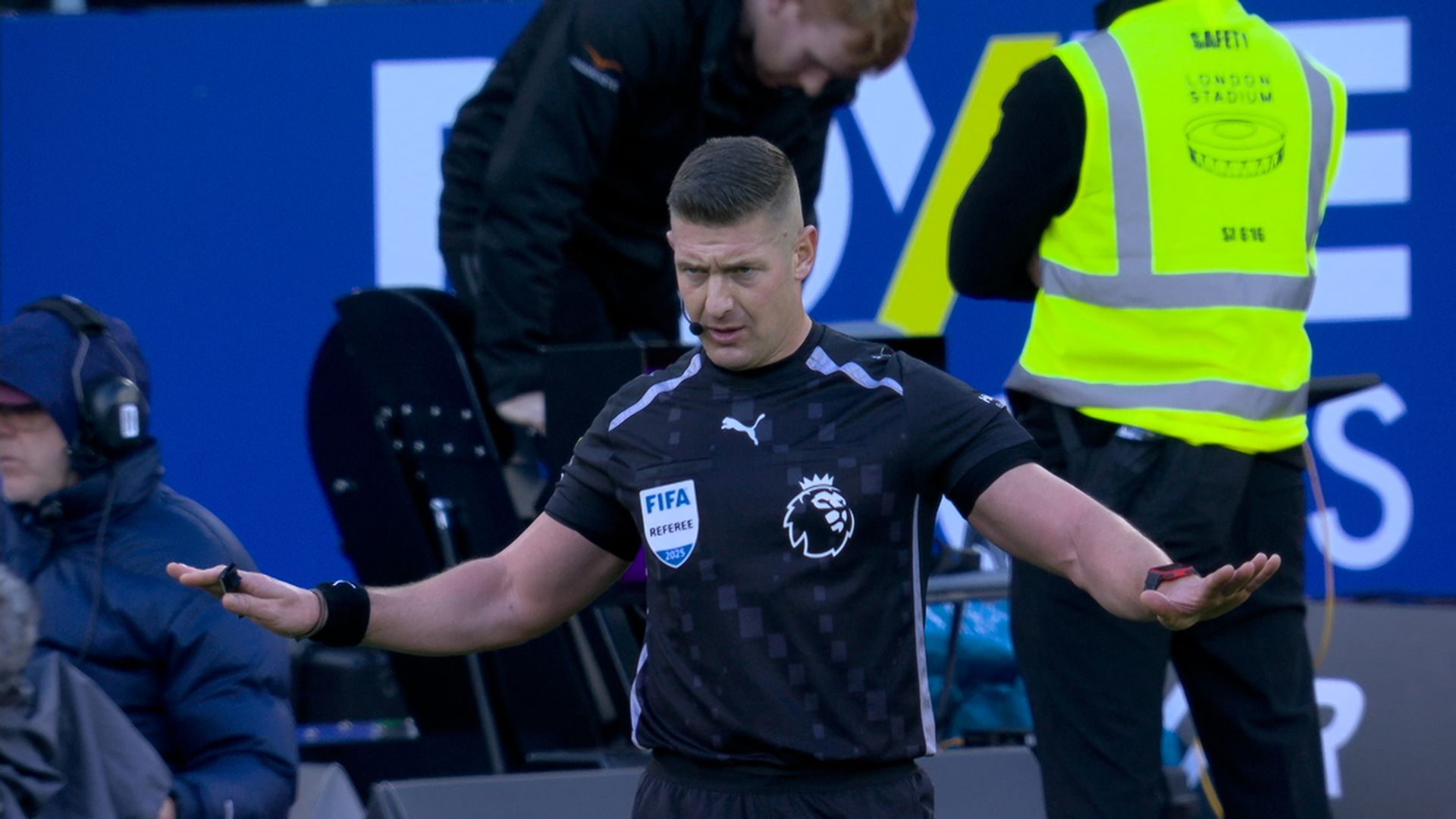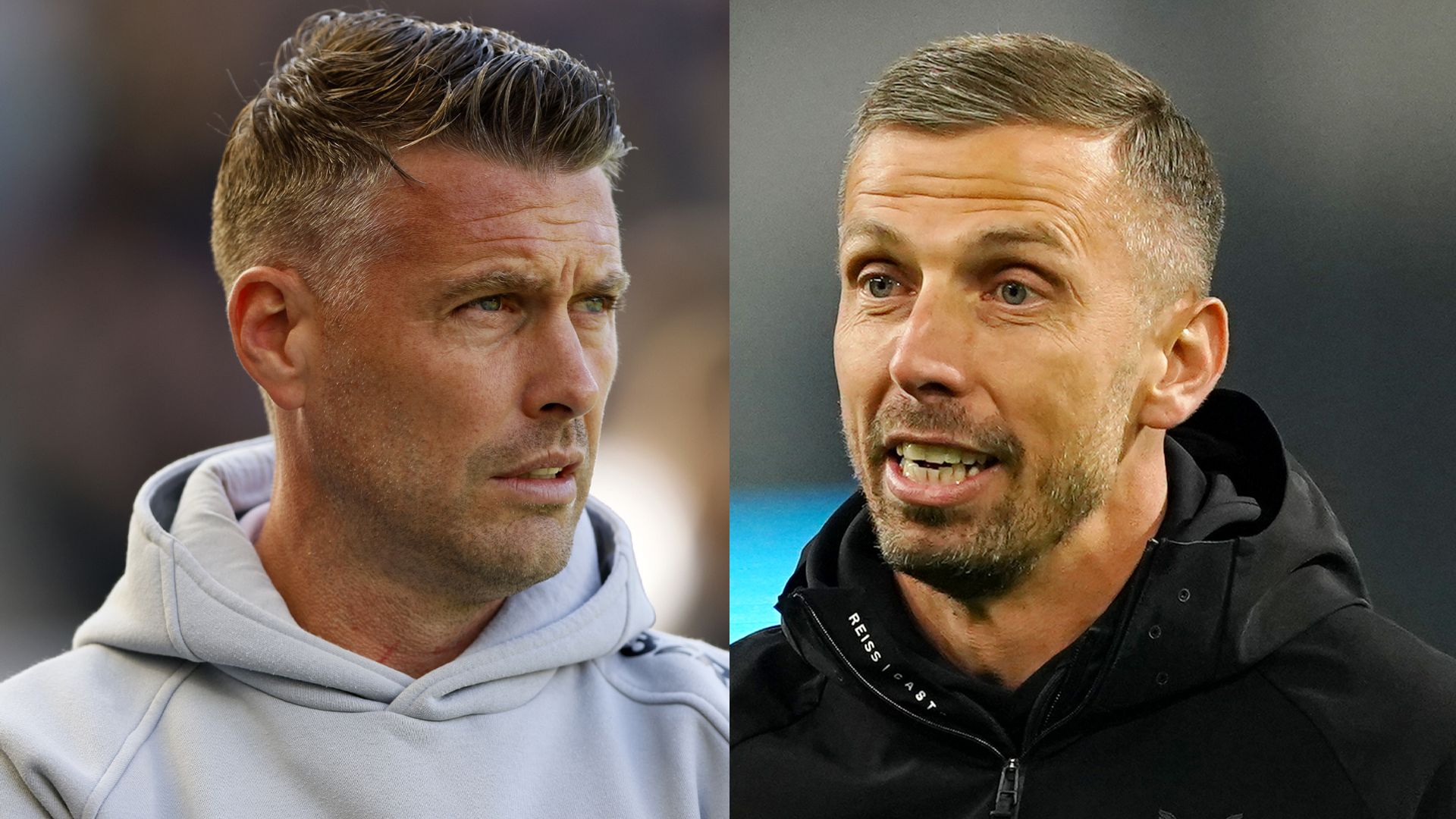Bowen’s VAR Penalty Overturn: A Divisive Moment in Football’s Struggle for Justice and Fair Play
The world of professional football is no stranger to controversy, and recent events surrounding West Ham’s Jarrod Bowen’s overturned penalty during a Premier League match against Newcastle have once again ignited a fierce debate about the efficacy and reliability of the Video Assistant Referee (VAR) system. This incident not only highlights the ongoing struggle for fairness in the sport but also reflects broader societal issues related to justice, accountability, and the interpretation of rules, drawing parallels to political and social conflicts that resonate beyond the stadium.
For many, the VAR system was introduced as a means to enhance fairness in football, aiming to eliminate clear and obvious errors that can dramatically impact the outcome of matches. However, as varied reactions to Bowen’s penalty decision demonstrate, fans, players, and pundits alike often find themselves at odds regarding the interpretation of the rules, creating a schism that mirrors the polarization seen in contemporary politics. The overturned penalty witnessed fervent discussions on social media platforms and sports broadcast channels, revealing the deep-seated emotional investment that supporters have in their teams and the game itself.
At the heart of the Bowen incident is the critical interpretation of what constitutes a foul and how the VAR system seeks to navigate these nuances. The phrase “ball before contact” has entered the lexicon of football analysis, raising questions about whether the action leading to the foul was indeed a legitimate challenge or an overzealous attempt to influence the referee’s decision. Such terminology is charged, invoking a sense of injustice for those who believe Bowen’s appeal for a penalty was genuine and deserving of protection under the rules of the game.
Critics argue that the VAR’s reliance on minute details and technology can detract from the essence of football. The emotional highs and lows of the game are often encapsulated in moments like a penalty awarded or overturned, creating a visceral experience for players and fans alike. The argument that VAR disrupts the natural flow of the game echoes a broader concern in society where technological advancements can sometimes overshadow human judgment, leading to a disconnection between the rules and their application.
This situation also brings to light the potential consequences for players and teams when decisions are reversed. For West Ham, the loss of a penalty could mean the difference between victory and defeat, affecting their position in the league, financial implications, and overall morale. In a league that thrives on competition, the capacity for a single moment to alter fortunes cannot be underestimated. The stakes are high, with teams vying for crucial points in a tightly contested Premier League season.
Furthermore, the implications extend beyond individual matches into the very framework of the Premier League. As clubs invest heavily in talent and resources, any perceived injustice can lead to a cascade of reactions, influencing everything from fan engagement to sponsorship deals. The economic ramifications of such overturned decisions emphasize the need for clarity and consistency in officiating, fostering an environment where all stakeholders feel their concerns are heard and validated.
Beyond the immediate footballing context, the situation mirrors larger discussions about fairness and justice within society. Just as players and fans feel the weight of a potentially flawed VAR decision, citizens grapple with legal systems that often seem impenetrable or biased. The struggle for fair treatment, whether in sports or everyday life, invites parallels drawn from social movements advocating for equity and accountability. In many respects, the VAR controversy has become a microcosm for examining how institutions interpret rules and the impact of these interpretations on the individuals they aim to serve.
The debate surrounding VAR’s effectiveness is further complicated by the emotional investment that fans have in their teams. Football is not merely a game; it serves as a source of identity for many, and when decisions challenge that identity, strong reactions are inevitable. This phenomenon is reminiscent of political debates where contrasting ideologies elicit passionate responses, indicating how deeply ingrained sentiments can cloud rational discourse. The Bowen incident has become a rallying point for fans, creating a community of voices advocating for reform and greater transparency in officiating.
Moreover, discussions about VAR are not confined to just one match or one season; they reflect ongoing tensions between tradition and modernity within the sport. As football evolves with technology, there is an inherent struggle between preserving the game’s heritage and adapting to new methods of ensuring fairness. Balancing these competing priorities raises fundamental questions about what the future of football will look like and who gets to shape its direction.
As stakeholders in the football community continue to voice their opinions on the implications of the Bowen penalty decision, it remains clear that the VAR system is far from settling the debates it was designed to resolve. The backlash regarding the overturned penalty reveals a fractured landscape where supporters feel disillusioned and, at times, betrayed by a process that is meant to prioritize fairness. The controversy resonates on multiple levels, paralleling societal challenges where individuals seek justice in systems that may not always deliver.
In the wake of these events, the Premier League faces an imperative to reassess its officiating processes and the role of VAR in shaping the game’s outcome. Whether this leads to meaningful change or simply more divisive discussions remains to be seen. However, the Jarrod Bowen penalty incident has undoubtedly underscored the intricate relationship between technology, human judgment, and the emotional fabric of football, ensuring that the debate around VAR will continue to occupy center stage in conversations about the future of the sport.




